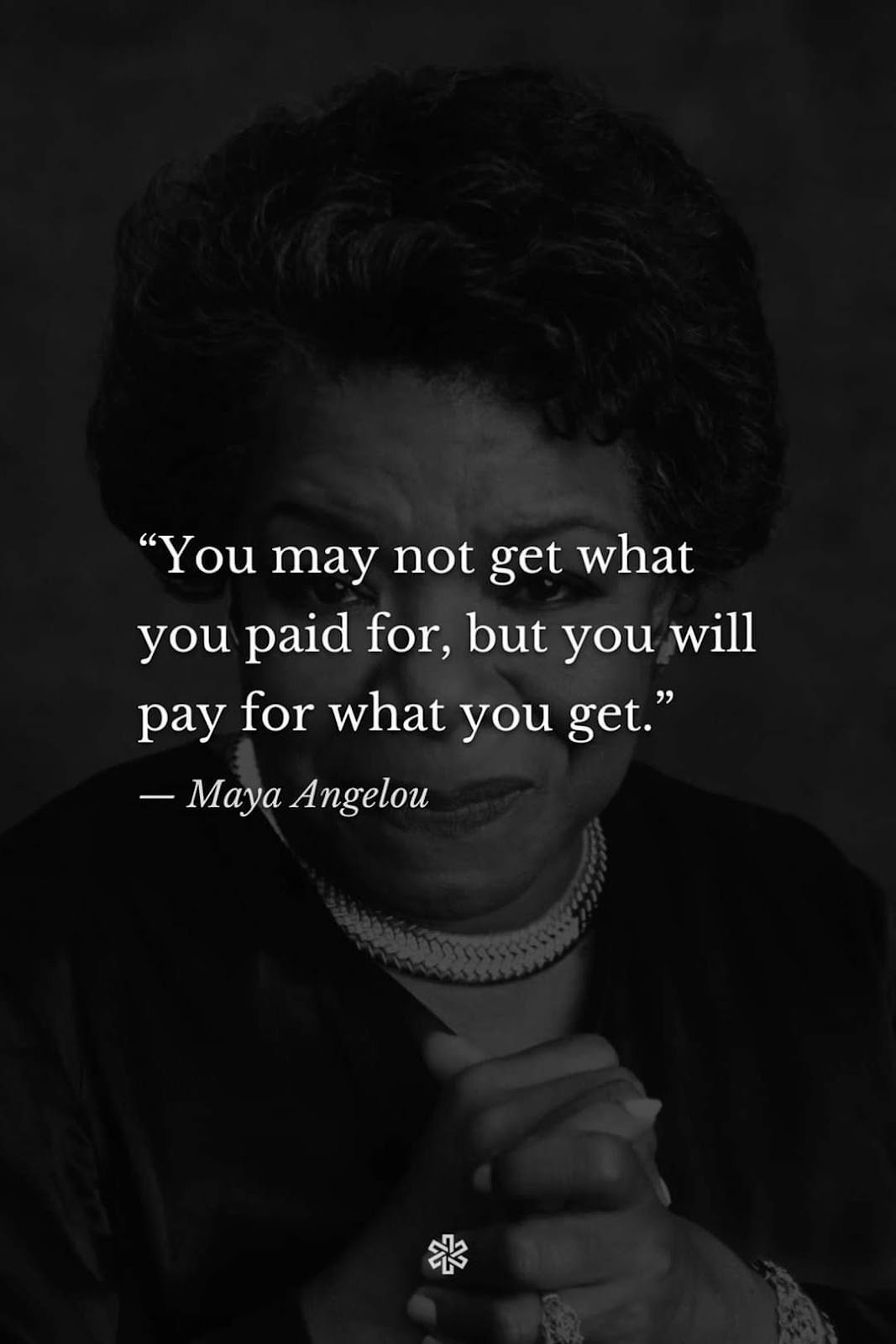"You may not get what you paid for, but you will pay for what you get." — Maya Angelou
"You may not get what you paid for, but you will pay for what you get." — Maya Angelou
Maya Angelou's profound words offer a deep reflection on the nature of expectations, investments, and consequences in life. This quote carries a layered meaning that can be dissected to uncover its various implications in our daily experiences and broader life decisions.
The Nature of Expectations vs. Reality
At its core, the quote underscores the discrepancy between expectations and reality. When we "pay" for something, whether with money, time, effort, or emotions, we inherently develop certain expectations. However, life often has a way of delivering outcomes that do not match these expectations. This mismatch can lead to disappointment and frustration. Angelou's insight reminds us that despite our best efforts and investments, outcomes are not guaranteed to align with our desires.
For example, in a professional setting, one might invest significant time and resources into a project with the expectation of a certain reward or recognition. However, the actual outcome might fall short of these expectations. This scenario illustrates that while our initial "payment" might not yield the anticipated results, the experience and the outcome we receive—positive or negative—have their own costs and lessons.
Accountability and Consequences
The latter part of the quote, "but you will pay for what you get," shifts the focus to the inevitability of consequences. This phrase implies that every acquisition or experience carries its own inherent cost, regardless of whether it meets our expectations. It highlights the principle of accountability: we are responsible for the choices we make and must deal with the repercussions.
Consider the realm of personal relationships. Entering a relationship with high expectations might not always lead to the fulfillment of those hopes. However, the experiences, lessons, and emotions derived from that relationship are unavoidable costs we must bear. This perspective encourages a realistic and mature approach to dealing with life’s outcomes, fostering a sense of responsibility and acceptance.
Financial and Material Implications
On a more literal level, Angelou’s quote can be applied to financial and material transactions. In a consumerist society, we often buy products or services expecting quality and satisfaction. However, the reality might not always match the price paid. For instance, purchasing a high-priced item does not necessarily guarantee its longevity or functionality. Conversely, acquiring something substandard will inevitably bring about dissatisfaction and possibly additional costs for repairs or replacements. This interpretation serves as a cautionary reminder to be judicious and realistic about our purchases and investments.
Broader Life Lessons
Beyond specific scenarios, Angelou's words resonate as a general life philosophy. They encourage mindfulness and discernment in our actions and decisions. By recognizing that not all efforts will meet our expectations and that every outcome has a price, we cultivate resilience and adaptability. This mindset prepares us to face life's uncertainties with a balanced perspective, reducing the impact of unmet expectations and enhancing our capacity to handle consequences.
Maya Angelou’s quote, "You may not get what you paid for, but you will pay for what you get," is a timeless reflection on the complex interplay between expectations, reality, and accountability. It teaches us to manage our expectations, accept the inherent costs of our experiences, and approach life’s outcomes with a sense of responsibility and realism. These insights are invaluable for navigating the unpredictable journey of life, fostering growth, and resilience in the face of challenges.
#MayaAngelou #LifeLessons #Wisdom #Accountability #Consequences #RealityCheck #Truth #LifeQuotes


